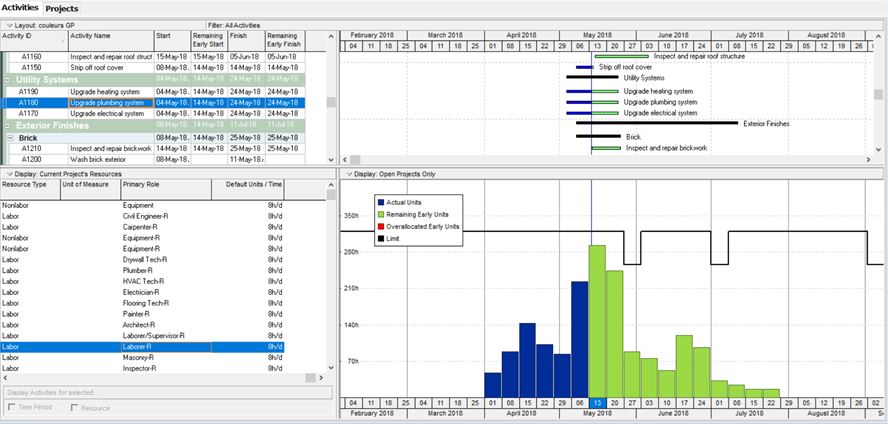The logic behind the schedule is never – or almost – the problem. What makes our schedules so mediocre is the way in which resources are integrated. Nothing can be done without resources. Schedules that do not take into account all resource constraints are incomplete and most likely Insufficient .
We are used to promoting work quickly. For financial sake or to simplify an exercise already often considered as cumbersome and useless, the main function of planning is determining the critical resources. So we publish non-efficient schedules to employees who are then oriented on improbable dates and who will soon suffer the variation of future adjustments. such plan is based on an infinite quantity of resources – which is definitely not accurate – and it is readjusted every time a worker leaves, a team gets smaller, a decision maker is not available.
The impact of such negligence is not limited to an insufficient schedule. In Quebec in 2017, we remain non-reactive to the delays in projects. Deferrals are commonplace and we joke about the poor management of our projects … and our public funds. The impact of planning negligence is deeper than we think, also:
1- Employees and all stakeholders completely lose confidence in a plan that does not take into account the reality. They know that the time required to do the job does not equal the turnaround time. They make the difference between time and effort and expect the manager to be able to do it too.
2- No project manager will delay an end date until they have validated the ability of the resources to complete the work within the specified time period. On the opposite, it is well known that a job well done takes time and that everything is not just a question of putting pressure on production. Nine pregnant women will not produce a baby after a month!
3- No one appreciates being called and fired and called again. Regardless of the industry, internal and external resources are not weathervanes and do not like being tossed between peaks and valleys. In this case, the resources reserve themselves, lose time or even worse, leave by blaming the mismanagement. The image of the project is affected and the rumors take care of its reputation.
4- One of the main goals of planning a project is to keep a history of events and activities. If the basic schedule (the baseline) is unreliable, therefore how can the delays and the causes of slippage be justified once the project is completed? No claim can be based solely on the fact that the tasks have slipped. Reference must be made to a plan and reliable sources to justify deviations. The other side will know – if you do not know – what has dragged your schedule. This is certainly due to a lack of resources.
5- A project is a continuous chain of constraints and limitations. The main one, in a context of full employment, is the limitation of the available resources. The schedule built by a competent planner should anticipate this fact, anticipate it and manage the risks or opportunities associated with it.
During my 30-year career, I have never seen a projects come true exactly as it was planned. I agree with you that a planning is never finished, that there are a multitude of factors that influence its smooth running. Is this a sufficient argument to reject the planning and leave the coordination of our projects to chance? As a taxpayer, I do not accept my money being used to repair, resume, correct, catch up. I hope that for 2019, with all the science we have, we finally put the energy to predict, prevent and avoid pitfalls. It’s possible, even easy. Just go there.
Thank you for your attention.
Maxime Fournier, Eng., M. IngPresident of Proxima Management
Inspired by a text by Rafael Dàvila

